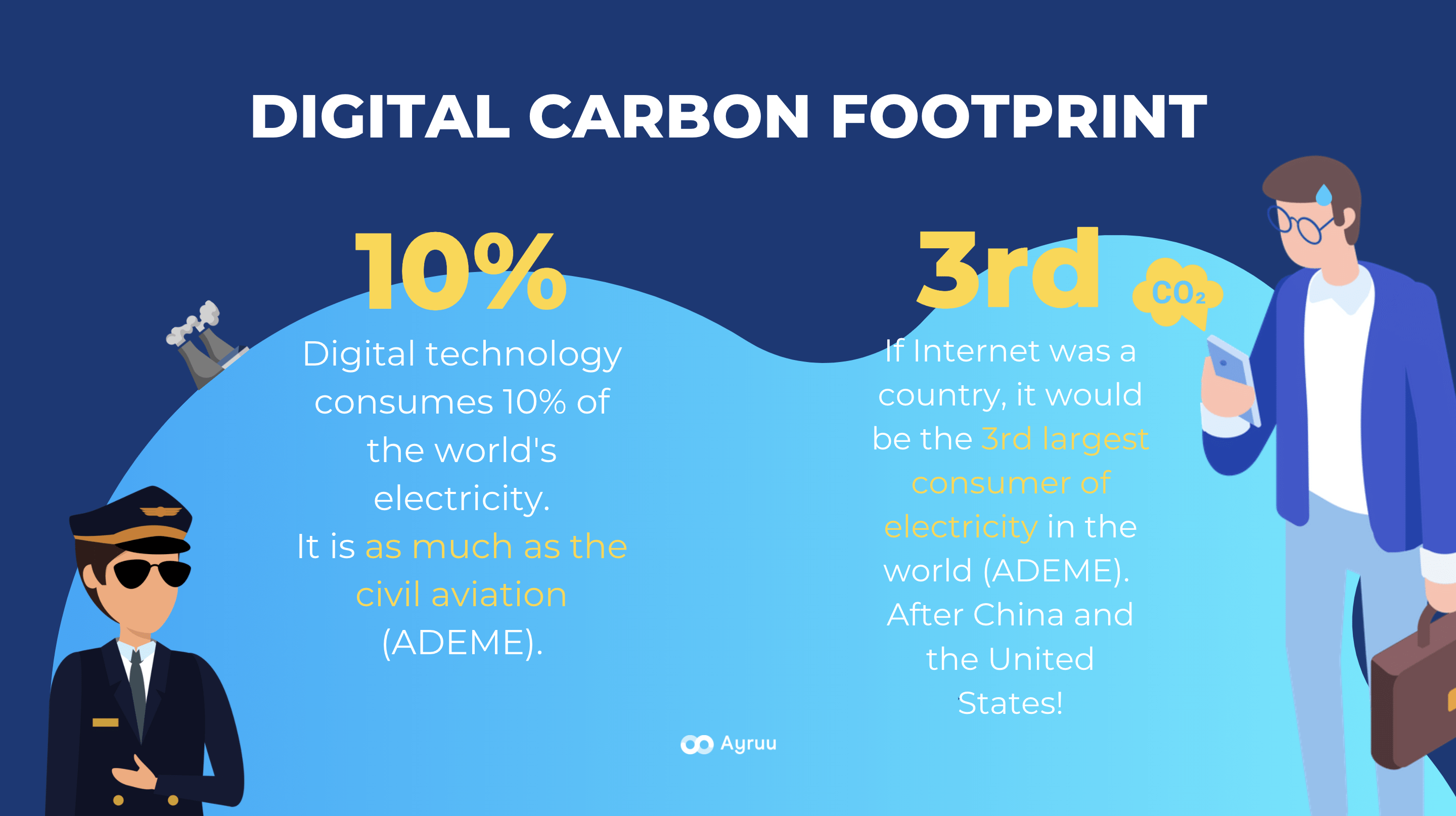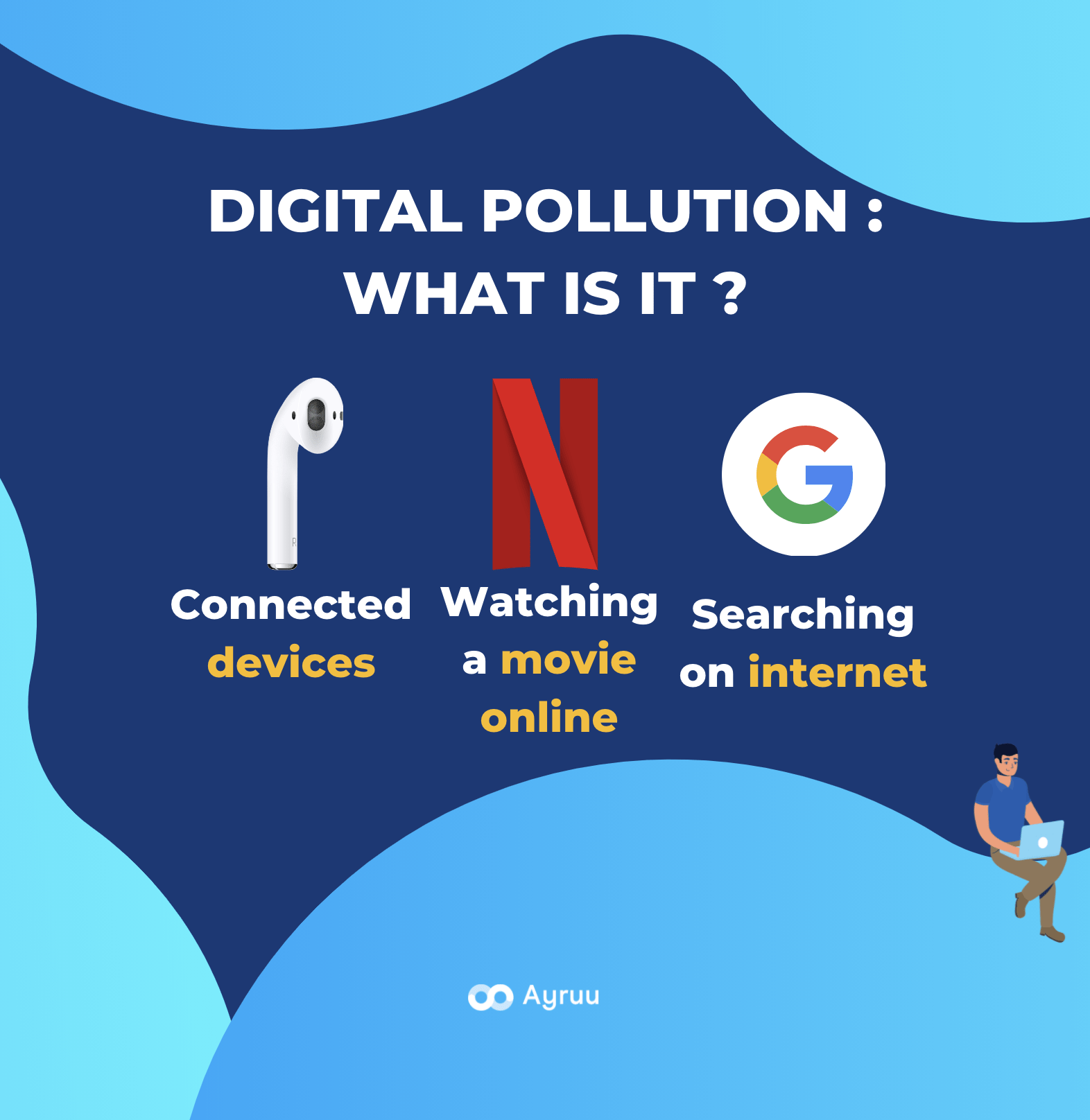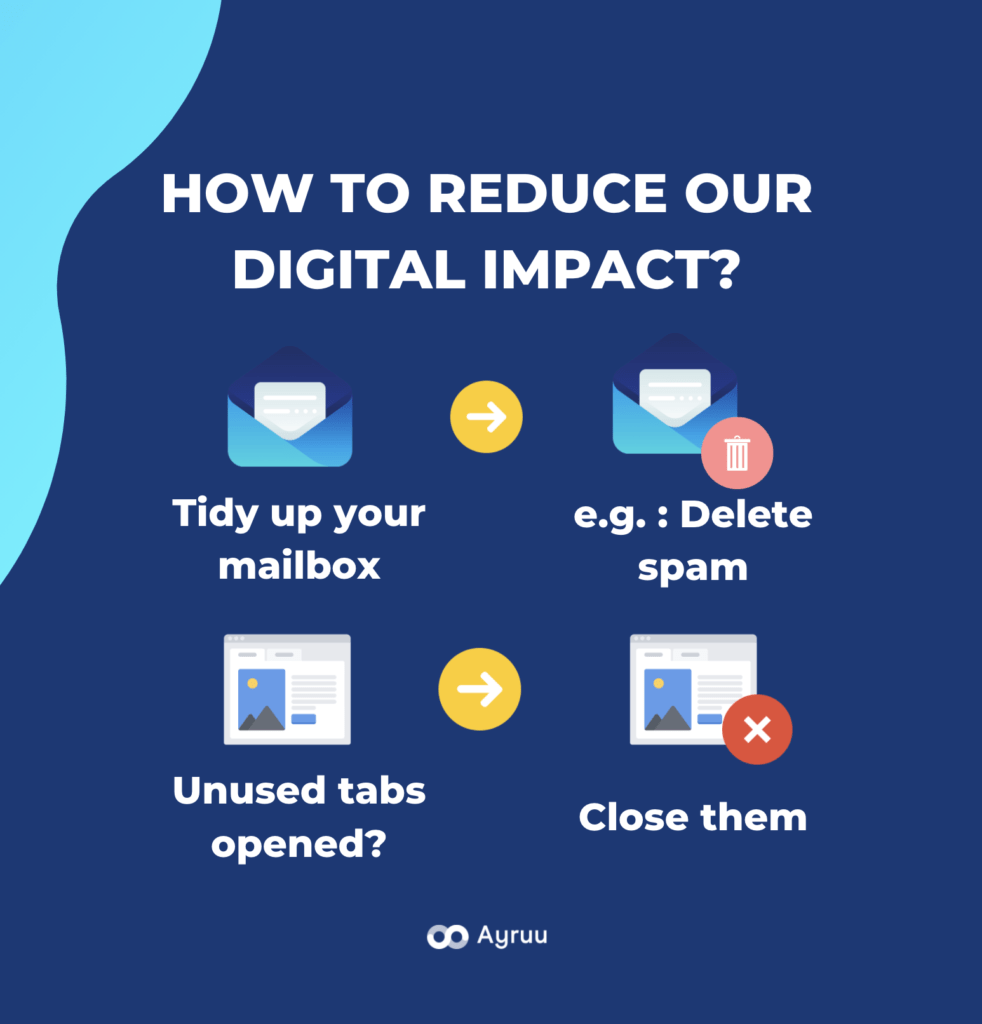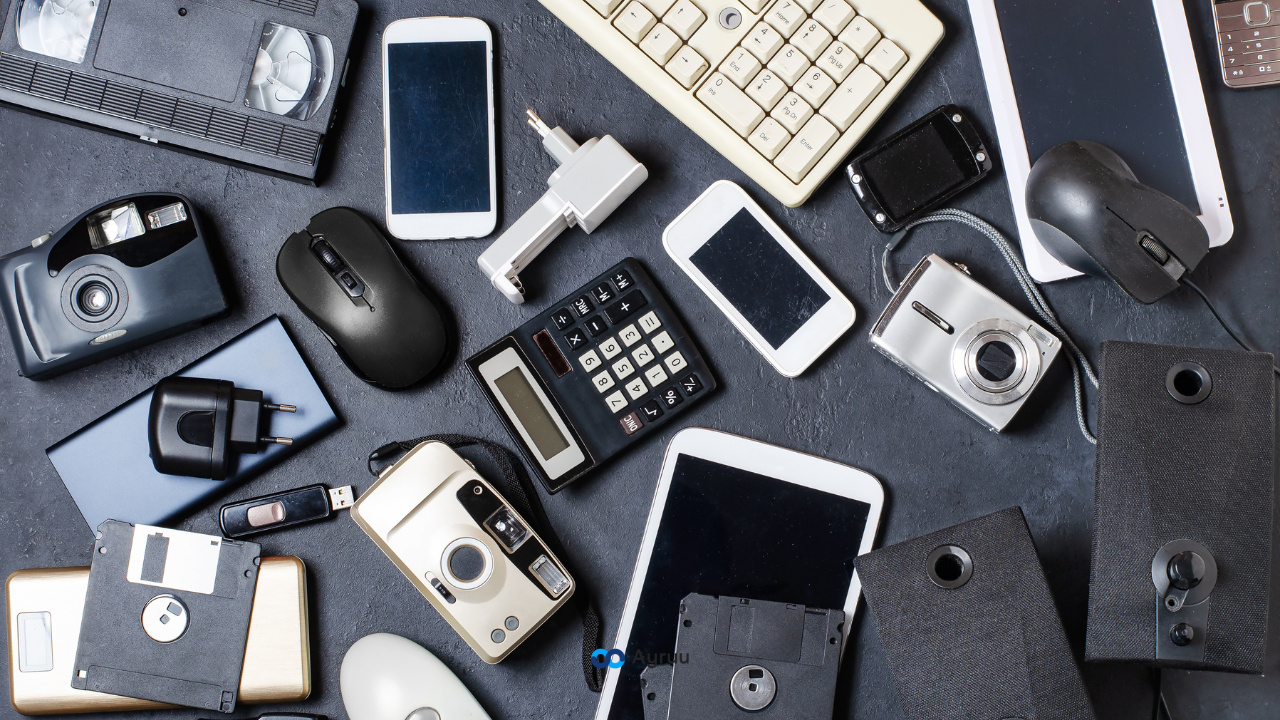
Digital pollution is real: the Internet pollutes. Indeed, digital technology accounts for about 10% of the world’s electricity consumption (ADEME). In fact, it is as much as civil aviation. Moreover, if we continue and do not take any measures, then digital pollution will reach the level of car traffic in 2025.
What digital impact do we have on the planet? And how can we reduce our digital pollution?
Digital pollution: definition
What is digital pollution? To begin with, it’s very simple: it’s all the pollution generated by new technologies. Indeed, nowadays our digital need is important: Netflix, Google search for a definition, Airpods, emails… And all this, you will have understood, requires a lot of energy.
In other words, we emit more greenhouse gases (GHG). Also, the manufacturing of all these computer tools consumes a lot.
5 surprising findings on digital pollution
1. First of all, in 2019, digital technology account for 4% of GHG emissions (ADEME). This is the same rate of emissions as Germany.
2. Second, the Internet now emits as much CO2 as air traffic (The Shift Project).

3. To date, it takes 80 times more energy to produce 1 gram of a smartphone than a gram of a car (Green Peace).
4. That said, if we imagine that the Internet represents a country, then it would be the 3rd largest consumer of electricity in the world. That is, the country that consumes the most electricity after China and the United States (ADEME).
5. In fact, the Internet alone consumes 7 to 10% of the world’s electricity (Cleanfox).
6. Because at Ayruu we do things in a big way, we double the figures. Do you like streaming? So do we. Well, 10 hours of film in HD is more data than the entire English pages of Wikipedia (DNA).
7. Are you reading this article from your computer at work? Well, you should know that one year of work on your PC (8 hours a day for 220 working days) is equal to the energy consumption of 80 low-energy light bulbs. (APEXPME).
8. Anyway, in 2020, 90% of the data was created between 2015 and 2017 (france culture). And obviously, we continue to produce even more.
9. We need 1.75 Earths to satisfy the needs of humanity (Global Footprint Network).
10. And finally, we send 34 million emails every hour. That’s the equivalent of 14 tons of oil (Cleanfox). In fact, if we send 20 emails a day, we pollute as much as if we drove 100 km.

What solutions should we adopt to reduce our digital impact?
Reduce digital pollution when on the computer:
1. Tidy up your mailbox. In other words, manage the flow of your emails. For example, if you don’t read your newsletters, unsubscribe. Also, don’t forget to delete the emails in your spam and social networks.
2. How many tabs/windows do you have open now? Close them. You are running servers that consume a lot of electricity. Whether we use the open tab or not, we have an environmental impact.
3. Do you also have several network accounts? Or several personal mailboxes? Sort it out. Because you are still running servers that store your data.
4. Try to bypass your search engine. Prefer to enter the website address directly than to use the web search with Google for example. Save time and… not money (unfortunately not this time) but energy. Tip: use your favorites bar.
On a daily basis :
1. First of all, even if you don’t necessarily think about it, turn off your box when you are not at home. Its annual energy consumption is that of a refrigerator (ADEME).
2. Obviously, not only your box is concerned, you can also unplug your unused chargers.
3. Preserve as much as possible the life span of your devices. In other words, if you use your tablet for at least 2 years or even 4, then you improve its environmental impact by 50%. So don’t wait: buy second-hand or repair your machines.
4. Did you know that 4G is 23 times more consuming than Wifi (ITU)? So if your fiber works perfectly (and you’re lucky), turn off your cellular data.
Finally, at work:
1. Communicate differently. You have now understood the impact of e-mails. Don’t hesitate to call your interlocutor instead, it requires less energy. Moreover, the answer is often faster.
2. Do you still prefer e-mails? No problem. Just remember to use them sensibly. You can reduce the number of recipients of your mails and limit the attachments to reduce its weight and thus its energy demand.
3. Uninstall software that you don’t need. Not only will your devices be lighter but they will also be faster and more efficient.
4. Forget about the cloud. Yes, data is stored on remote servers and that’s a lot of energy. Tip 2: Delete unnecessary files from the Cloud like duplicates. Otherwise, prefer storage on your computer or even a hard drive.
Digital pollution and business travel: what to do?
When we organize a trip, whether personal or professional, we mostly use digital technology. Therefore, we advise you to use travel applications, which are less energy consuming. However, beware of application graveyard. That’s why solutions like Ayruu exist: an application that gathers all the needs of a business trip.
You are now ready to act for the good of the planet even when organizing a business trip. If you want to learn more about the latest news in business travel, you can subscribe to Ayruu’s newsletter.
Sources: ADEME, The Shift Project, Green Peace, Cleanfox, L’ADN, France Culture, Global Footprint Network, ITU
Did you like this article? Feel free to share it on your social networks 🙂






